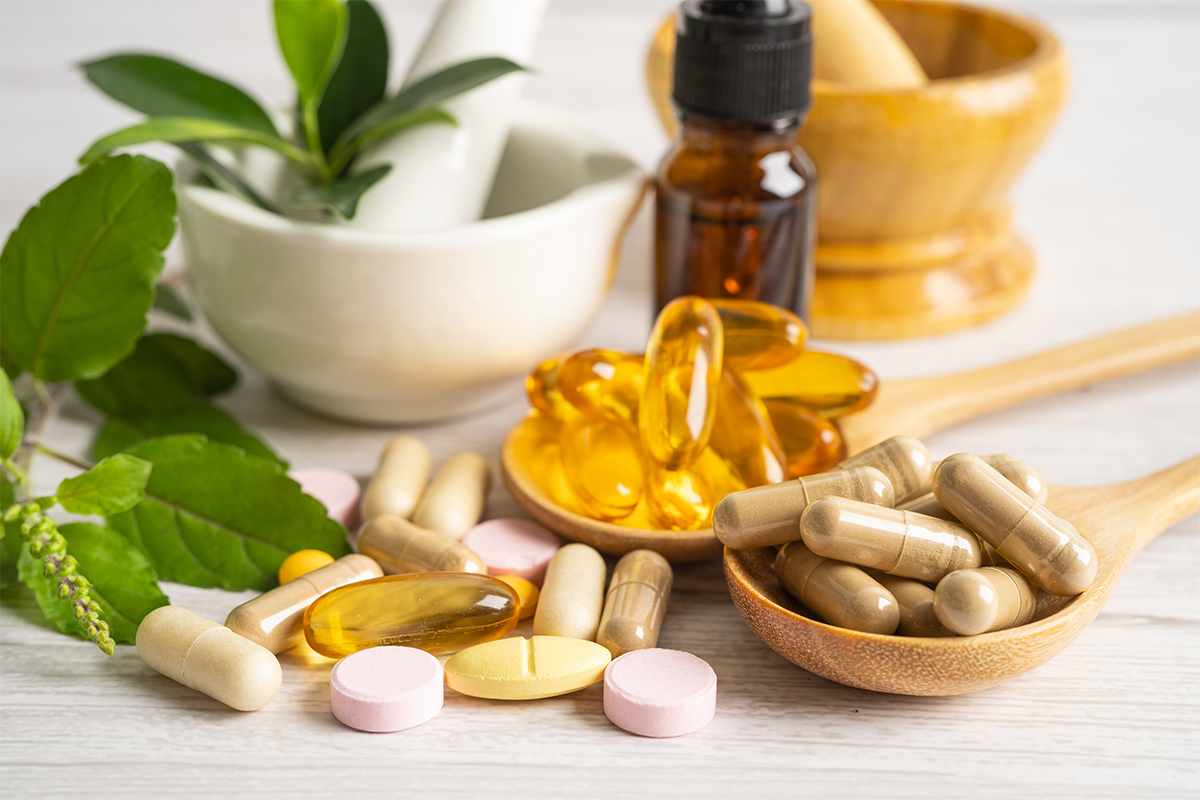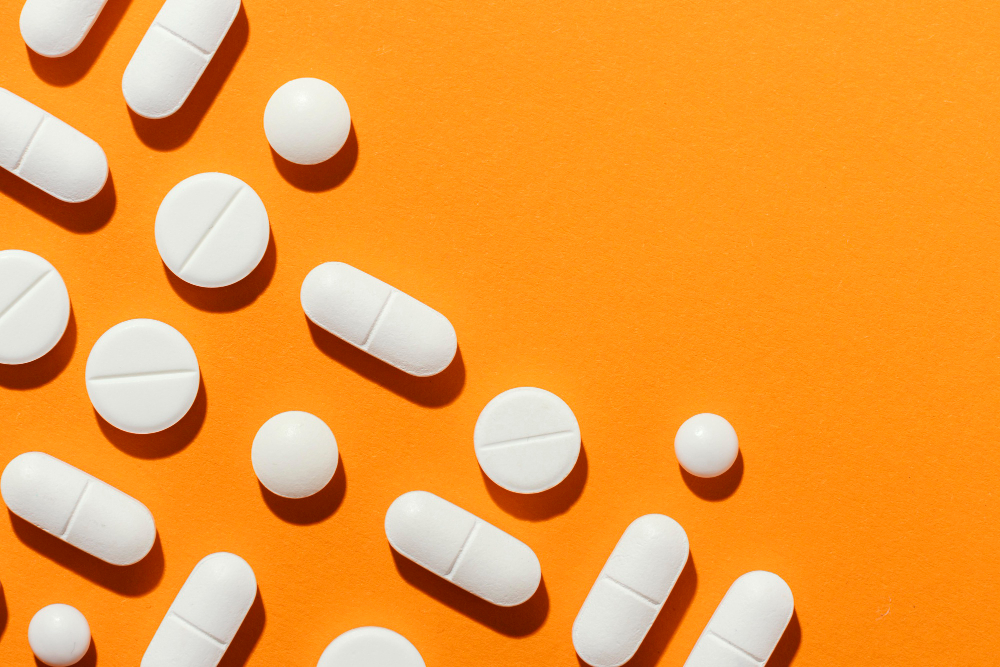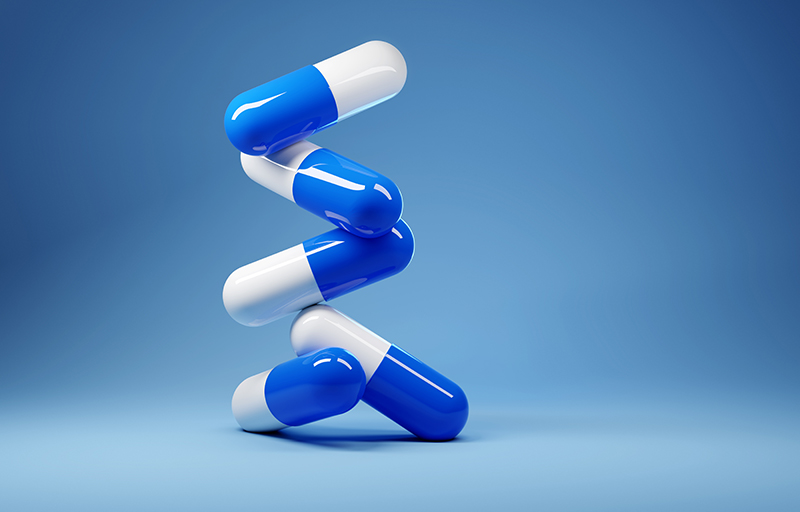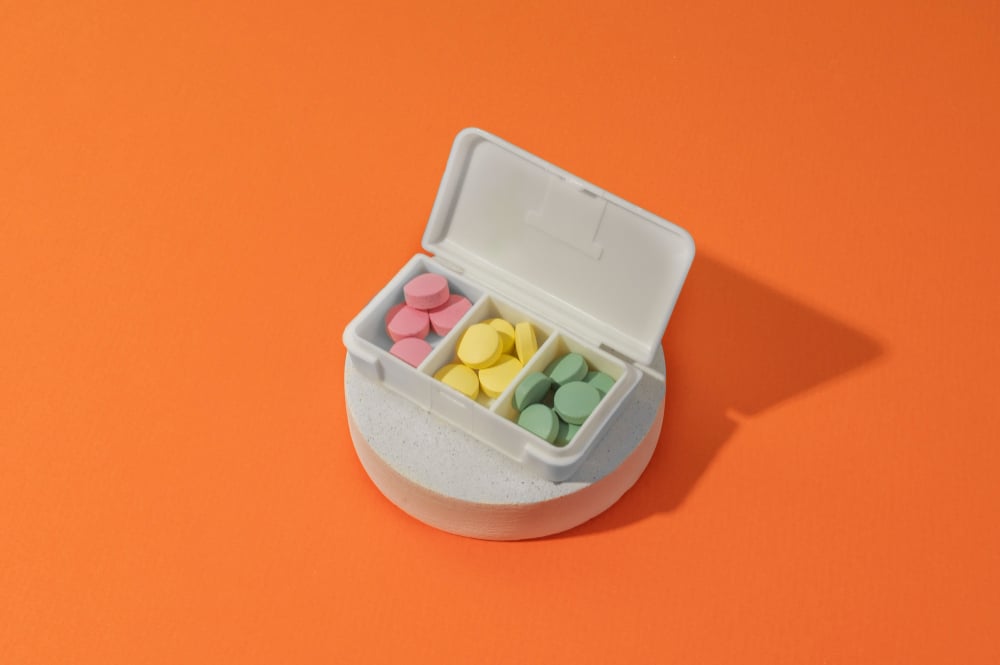
Reviewed and Updated: July 31, 2024
Many supplements and medications can be found in tablet or capsule form. Either form can provide the same medicine or nutrients to your body via your digestive system but there are a few differences between the two.
Depending on your needs and preferences, one or the other may be preferable so let’s take a look at the pros and cons of tablets vs capsules.
What is a Tablet?

Tablets are units of medication or supplements that are made by pressing ingredients together into a round, oblong or disc shape. Usually, they contain binders or additives that help to hold the pill together, retain shape or improve taste.
The pros of tablets
- Lower cost - It may depend on the active ingredient or medication but tablets are generally less costly to manufacture and cheaper to purchase.
- Long shelf life - Tablets are more stable and typically have a longer shelf life than capsules.
- More durable - Tablets aren’t as reactive to heat and humidity as capsules are.
- Higher dosages - The same size tablet can be more potent and contain more of the active ingredient than a capsule of equivalent size.
- Can be split - Tablets can easily be cut into halves or thirds to provide greater control over your dosage or to distribute the dosage over the course of a day.
- Chewable - Some tablets are available in chewable or orally-dissolving versions.
- Different delivery - Tablets can be made for quick release, delayed-release, or extended-release.
- Better for plant-based diets - Tablets don’t require animal gelatin coatings as they’re simply pressed together.
The cons of tablets
- Taste - Tablets may have additives to provide a more pleasant flavor but they can often leave a medicinal aftertaste.
- Unpredictable breakdown - Tablets can dissolve unevenly once they reach your digestive tract making their absorption a little less predictable.
- Slower absorption - While there’s some variability, tablets are generally absorbed slower than capsules.
- More likely to cause irritation - Tablets are more likely to irritate the gastrointestinal tract.
- Less bioavailable - Tablets can get partially absorbed in the stomach and as a result less of the active ingredient may be absorbed into the bloodstream. To solve this problem, some tablets have an enteric coating to prevent them from dissolving until they reach the small intestine. However, this coating will not allow for splitting.
What are Capsules?

Capsules are composed of medication, supplements or vitamins encased in an outer shell (usually made of animal gelatin). The shell dissolves in the digestive tract so that the medication can be absorbed into the bloodstream in a way similar to a tablet.
There are two main types of capsules: hard-shelled and soft gel.
Hard-shelled capsules vs soft
Soft gel capsules - Soft gel capsules are made of a one-piece, gelatin-based shell that contains a liquid or semi-solid fill. The gelatin shell is soft and flexible, giving the capsule a smooth and easy-to-swallow texture.
Hard-shelled capsules - Hard-shell capsules are typically made of two pieces, both of which are made from animal gelatin unless otherwise explicitly stated. The filling is normally a powdered or granulated version of active and inactive ingredients.
The pros of capsules
- Fast Acting - Capsules tend to break down and release ingredients into the bloodstream faster than tablets.
- Taste - Capsules usually don’t have any taste or at least don’t have the medicinal taste that tablets do.
- Bioavailability - Capsules can have a higher bioavailability, meaning that more of the nutrients or active ingredients enter your bloodstream.
The cons of capsules
- Lower dose - Manufacturers cannot fit as much of an active ingredient or medication in a capsule as the same size tablet. Alternatively, this can mean a larger capsule is needed to provide the same potency or benefit.
- May contain animal products. The vast majority of capsules are made from animal gelatin. Veg capsules are available but unless the packaging explicitly states that the manufacturer used V-Caps or Veg capsules, you can assume they are made with animal products.
- Shorter shelf life - Capsules often expire more quickly than tablets.
- Durability - Capsule medicines can react to sunlight and humidity, diminishing their potency.
- Stomach Irritation - Capsules can irritate the stomach lining for some individuals.
- No crushing, chewing, or splitting - Most capsules should not be altered due to affecting the absorption of the correct dosage and possible overdosing; however, only certain capsules can be opened and sprinkled on food with the indication of your medical provider.
Direct Comparisons
Do Tablets or Capsules go Down Easier?
They each present their own challenges.
Tablets can be hard, oddly shaped or carry an unpleasant taste. Capsules, as discussed above, need to be a bit bigger which can also make them difficult to swallow.
Absorption: Tablets vs Capsules
Tablets are compressed powders that may contain binders, fillers, and other inactive ingredients. As a result, tablets generally have better absorption than capsules.
Traveling: Tablets vs Capsules

Traveling with tablets will generally be easier because they’re smaller and not as sensitive to heat and humidity.
Bottom Line
A wide range of supplements and medications are offered in tablet and capsule forms. Each has its own benefits and drawbacks. Your own personal needs and preferences as well as your doctor’s recommendation will determine which is better.
This article is provided for informational purposes only and is not intended to be used as medical advice. If you have immediate concerns about your health, please seek the help of your physician.
*These statements have not been evaluated by the Food and Drug Administration. Products are not intended to diagnose, treat, cure or prevent disease.






Validate your login
Sign In
Create New Account